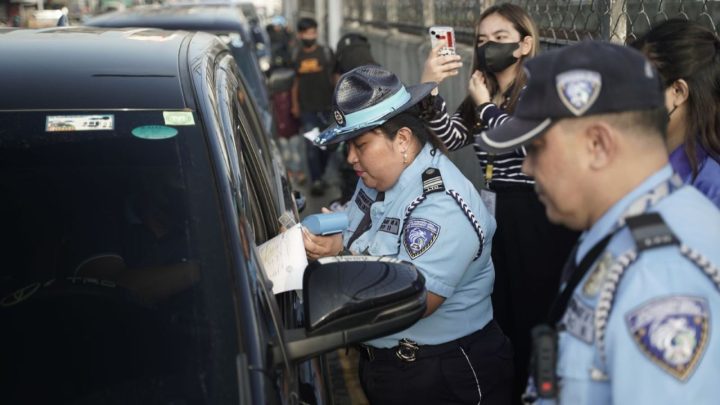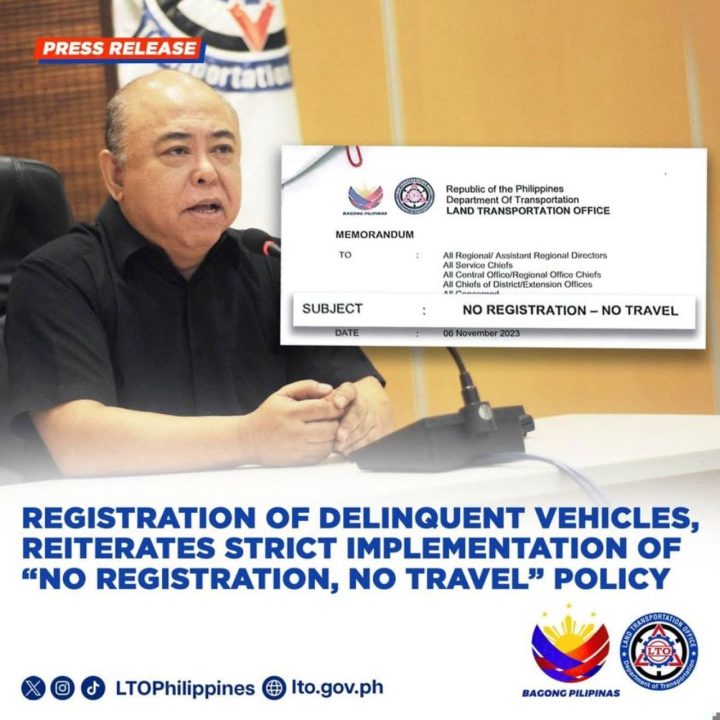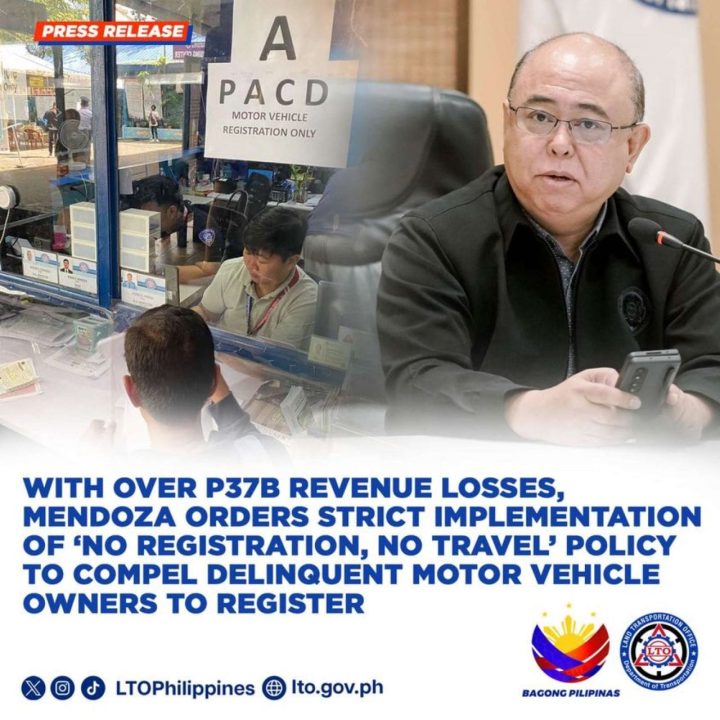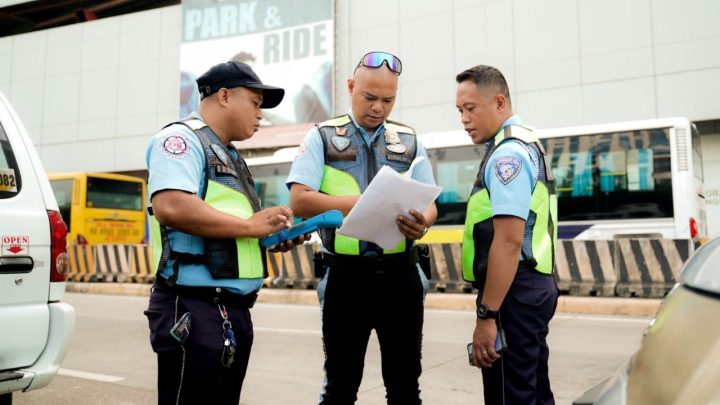
As motorists, it is common knowledge that a vehicle must have a valid LTO registration to be able to be used legally. Unfortunately, whether by mere oversight or done on purpose, vehicle owners don’t have valid registrations. This has alarmed the Land Transportation Office because the act of not renewing a vehicle’s registration causes a massive loss in revenue, and again, driving without one is plain and simply illegal. That said, the “No Registration, No Travel” policy will again be strictly enforced.
PHP 37B worth of revenue lost, LTO to enforce No Registration, No Travel policy

Photo: Land Transportation Office
As it stands, a staggering 65% of motor vehicles in the Philippines are classified as being “delinquent”, in that their owners failed or refused – on purpose – to have them registered.
“We have around 24.7 million delinquent vehicles and some of them are registered under various government agencies. We are seeking the assistance of these government agencies for the renewal of the registration of the delinquent vehicles under their respective offices,” said LTO Chief Atty. Vigor Mendoza II.
That said, Mendoza has called on motor vehicle owners to register their vehicles at the soonest possible time as the agency begins the strict implementation of the “No Registration, No Travel” policy. The order to enforce this directive was based on the Department of Transportation Secretary Jaime Bautista’s instruction to strictly implement the Republic Act 4136, otherwise known as the Land Transportation and Traffic Act. More specifically, Section 5 states the compulsory registration of all motor vehicles.
“This provision clearly states that no motor vehicle shall be used, driven, or operated on the roads without being currently registered with the LTO,” said Mendoza.

Photo: Land Transportation Office
Delinquent motor vehicles refer to those that were not registered on their due dates. Based on the LTO’s data, approximately 24.7 million of the 38.3 million vehicles in the country are classified as such (delinquent). To put this into perspective, this means only around 13.3 million, or 35% of the motor vehicles in the country are registered, and thus, can legally be driven and used.
Given the registration payments and the penalties that can and will be collected from such delinquency, the Land Transportation Office has pegged its revenue loss in the area of PHP 37.1USD 0.63INR 54EUR 0.61CNY 5 billion. The number of delinquent vehicles was counted and based on the outstanding delinquent registrations as of April 2022.
“Yung included sa report na ito ng delinquent motor vehicles ay yung mga sasakyan na based sa aming record ay more than one year ng hindi nare-renew ang registration. Hindi pa kasama dito yung mga less than a year na hindi naka-renew ng registration [Those included in this report of delinquent vehicles, based on our records, have not been renewed for more than a year. This still does not include those that still have not been renewed for less than a year],” Mendoza explained.
Mendoza added that this data is alarming since based on their assessments, delinquent motor vehicles are normally those that have problems passing roadworthiness inspections that include emission testing, or those that do not have insurance coverage. “In other words, these motor vehicles are threats to road safety. We have to be very strict in implementing the laws on land transportation not only to make it fair to the law-abiding motor vehicle owners but also for the welfare of the road users,” said LTO’s Mendoza.

Photo: Land Transportation Office
Earlier it was mentioned that some government vehicles are included in those that have been delinquent with registration. The LTO should have no problems or difficulties in dealing with them, but the question is how they will “compel” normal citizens to register their vehicles with the LTO. Yes, records exist, and the vehicles’ owners’ information is visible to the LTO, but what measures will the agency employ to make sure that everyone complies? That remains to be seen.
On our part, let’s make sure that our vehicles are up-to-date with their registration 17, that way if we’re pulled over for a random check – which the LTO might consider doing – we won’t run the risk of being ticketed, or worse, have our vehicle impounded.


